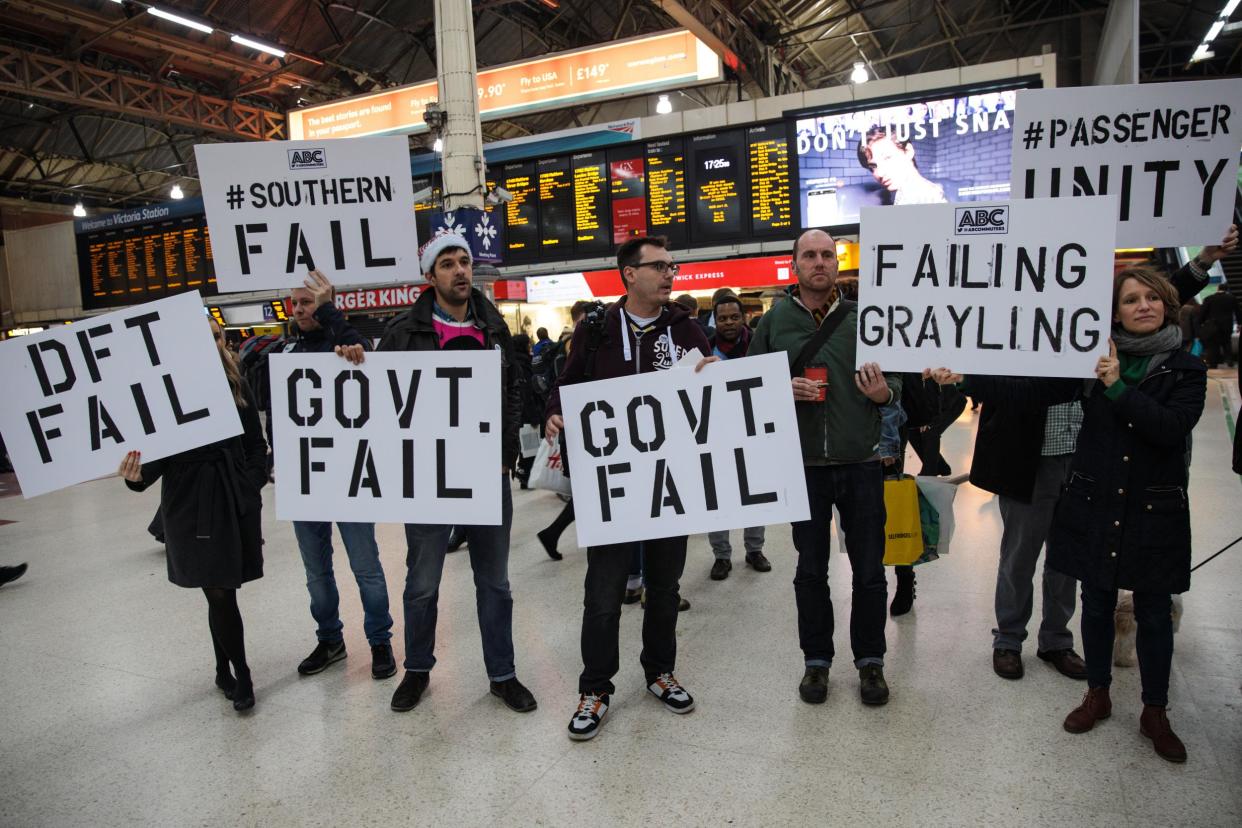This latest rail chaos will deepen the well of anger that is fuelling talk of nationalisation

There was a tired inevitability about the chaotic scenes on Britain’s railways this morning as a new timetable came into effect.
Services operated by Govia Thameslink Railway (GTR) were the worst affected, with delays and cancellations accompanying major scheduling changes across the Southern, Thameslink and Great Northern franchises. There were also problems on the Arriva-operated Northern network, which led Manchester mayor Andy Burnham to call the situation “dire”.
Plainly the failure to get trains running to the new timetable efficiently is embarrassing. Passengers have for weeks been listening to announcements telling them to prepare for changes to departure times. Now it appears that the rail operating firms themselves weren’t ready.
For beleaguered commuters, this may be no less than they expected. Regular users of Southern services in particular have little faith in the company that runs the franchise – a cancelled train is a cancelled train, no matter when it was intended to leave the station.
It doesn’t help that this latest fiasco follows hot on the heels of the government’s confirmation that it is having to take East Coast mainline service back into public ownership, at least for the time being. While the failure of the Virgin Trains East Coast franchise is unrelated to this week’s timetabling problems on other parts of the network, critics of Britain’s privatised railway naturally see a pattern.
Certainly the latest problems hint at a degree of organisational turmoil within GTR and Arriva that ought to be unacceptable in any major corporation, let alone providers of a vital public service. Union representatives point to delays in training drivers for new routes, which they say left GTR short of the necessary experience to enable a smooth transition. If that is the case, then there are obvious questions to answer.
The changes in the Southeast have come about largely because of the development of new, direct routes from Cambridge and other stations north of London down to the south coast, via an enhanced corridor between St Pancras and Blackfriars. The new timetable should also bolster efficiency more broadly and increase capacity – eventually.
Indeed, the £7bn of investment in the Thameslink corridor is precisely the kind of boost to the UK’s rail infrastructure which passengers have long craved. While other parts of the country’s rail network have improved markedly in the era of privatisation, the congested Thameslink routes have become ever more clogged up as commuter numbers increase.
Ultimately, GTR says the amended timetable will see 13 per cent more trains running across the franchises it controls. Arriva says its Northern network too will see a significant uplift in the number of services in operation. Self-evidently that is all good news for passengers.
Yet it will not go unnoticed that the improvements to infrastructure are the responsibility not of the private companies which run the rolling stock, but of Network Rail, a public sector company which is funded in part by direct grants from the Department for Transport and which is answerable to parliament.
Debates about nationalisation will not, in the final analysis, be won and lost as a result of this latest fiasco. It should, indeed, come down to no more than economics: which model of ownership and operation (private, public or the present hybrid system) provides the best value for money for the taxpayer while providing the best service to passengers?
The truth is though, that it is public sentiment which may well help to drive the debate to its conclusion. In that sense the extraordinary ineptness in display from GTR and Arriva will only add to the substantial well of anger that already exists towards the private companies which run Britain’s railway trains.
After all, this significant rescheduling exercise has been in the pipeline long enough for proper planning to have been undertaken. If the operators knew they had taken inadequate steps to implement the new timetable, they should have delayed its introduction. The mass cancellation of planned services is an intolerable alternative by companies which appear not to care if they run headlong into the buffers.

 Yahoo News
Yahoo News 
